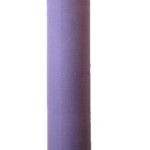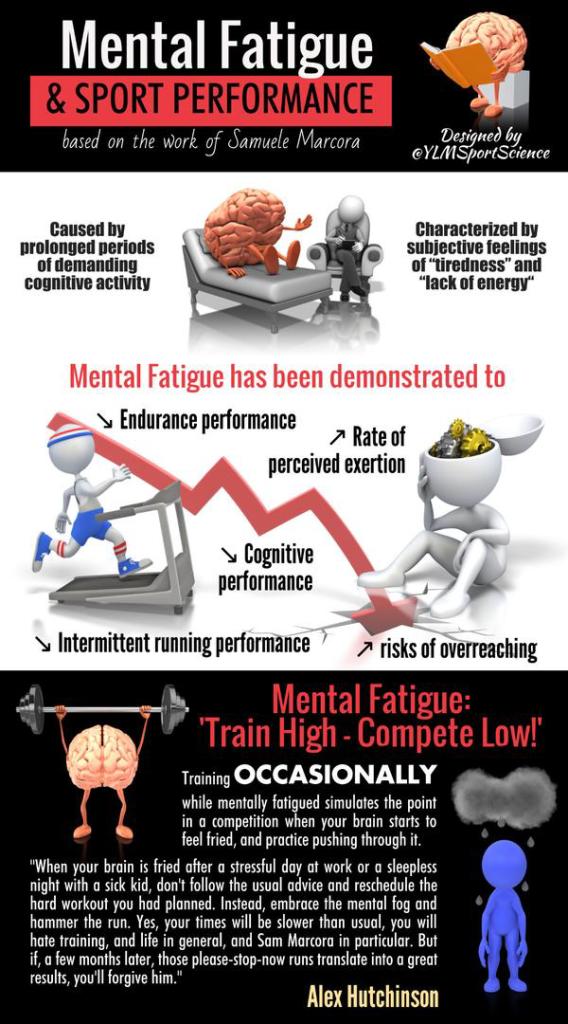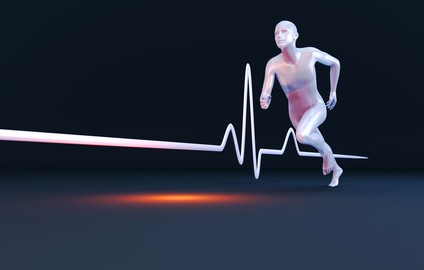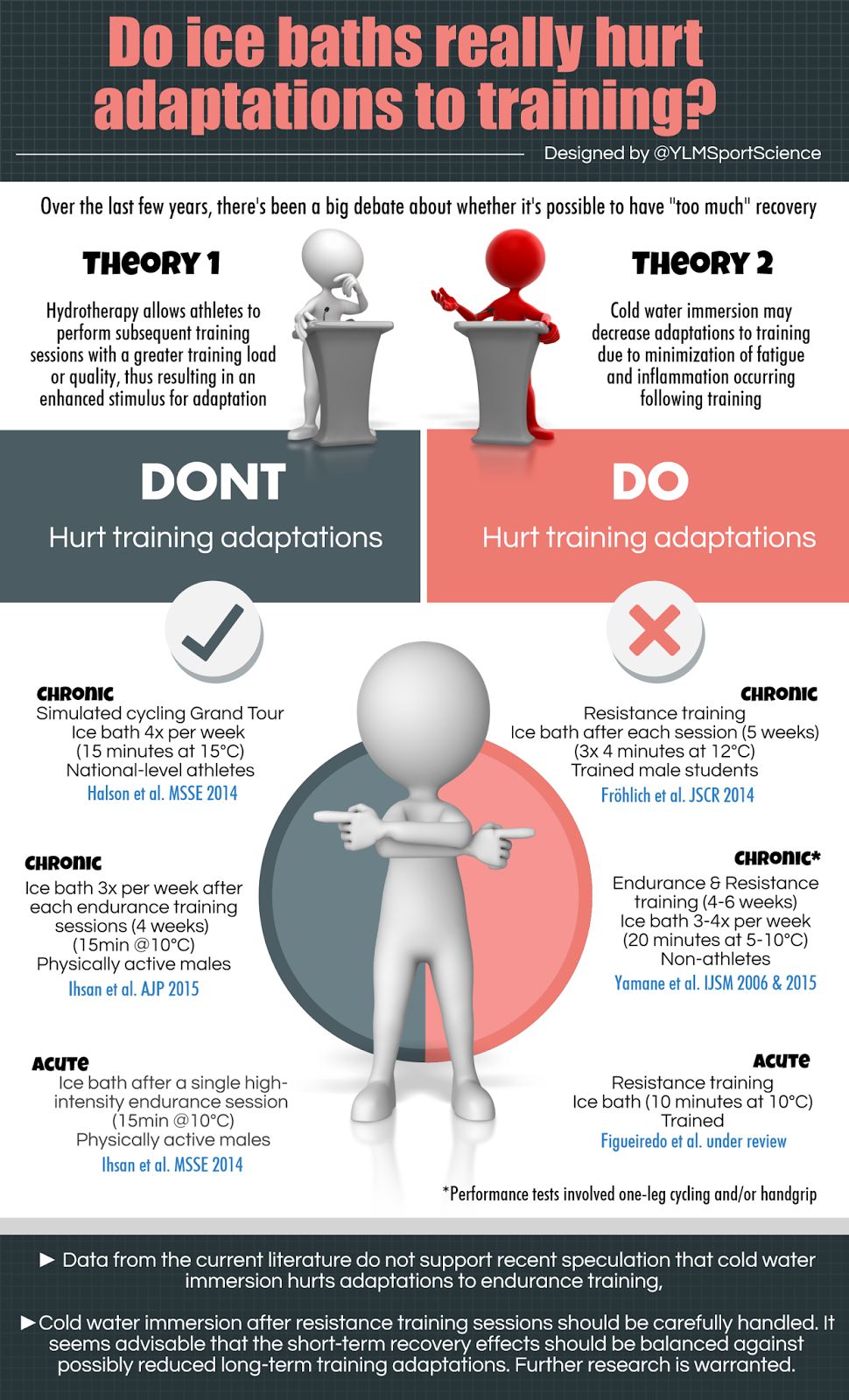I enjoy keeping up-to-date with the latest sports science research and other articles about training for sports performance. Remember, although one study can make a dramatic headline, it often takes years of research, different kinds of studies, and practical application to show how different training methods influence performance. Below are links to research that caught my attention. I’ll be updating the list so be sure to check back!
General Resources
Infographics by Yann Le Meur. Summarizing complex studies can be a challenge. Exercise physiologist Yann Le Meur is helping make sports science research understandable for all, using graphics and simplified text to illustrate recent studies. Le Meur conducts research at the National Institute of Sport, Expertise, and Performance in Paris. You can also follow him on twitter at @YLMSportScience).
Altitude Training
- The Surprising Benefits of Training in the Heat
Is heat better than altitude? The science seems to say so. (Outside Online, July 2016). - Training in Heat to Prepare for Altitude. Study finds that hot weather and thin air trigger similar adaptations. (Alex Hutchinson, Runner’s World, April 2016).
- Cross Acclimation between Heat and Hypoxia: Heat Acclimation Improves Cellular Tolerance and Exercise Performance in Acute Normobaric Hypoxia. (Front. Physiol., 08 March 2016 | http://dx.doi.org/10.3389/fphys.2016.00078). (Science Daily release).
- Can You Cram for Altitude? Study tests different elevations to prepare for racing in thin air. (Alex Hutchinson, Runners World, reporting on J Appl Physiol 2016).
- Altitude training and performance. This is an excellent presentation of the latest research on altitude training & performance by exercise physiologist Yann Le Meur. (Yann Le Meur, September 2015).
- Timing of return from altitude training for optimal sea level performance (Journal of Applied Physiology April 1, 2014 vol. 116 no. 7)
- Predicting Your Performance at Altitude (Alex Hutchinson, Runners World)
- Study reveals best altitude (2000-2500 m) for better performance at sea level (Journal of Applied Physiology, Dec 2013)
- Is heat training the new altitude? Heat Stress, Plasma Volume, and the Benefits of Dehydration (Alex Hutchinson, Runner’s World, April 2013)
- Your Brain on Altitude- How altitude can cause or prevent depression? (Steve Magness, Science of Running)
Athlete Health
- Debunking the Myth of Exercise-Induced Immune Suppression: Redefining the Impact of Exercise on Immunological Health Across the Lifespan. (Frontiers in Immunology, 2018, April).
- How an xc ski stage race (Tour de Ski) influences subsequent illness and performance. This study finds plenty of illness in athletes after this grueling event, and looks at influences on subsequent performance. Researchers found that male skiers were more prone to illness and decreased race performance than female athletes (seems Tour de Ski participation may have benefited subsequent performance of female athletes). (Scand J Med Sci Sports. 2015 Mar 27).
- How the Norwegian team reduced illnesses for the Vancouver Olympic Games
- Managing the health of the elite athlete: a new integrated performance health management and coaching model (Br J Sports Med 2014;48:523-531)
- Exercise isn’t enough. To remain healthy, you need to build athleticism (Micheal J. Joyner, MD)
Heat Training/Weather Considerations
- The Surprising Benefits of Training in the Heat
Is heat better than altitude? The science seems to say so. (Outside Online, July 2016). - Hypothermic conditioning for exercise performance (video). Heat training expert explains how to use heat acclimation techniques to improve performance (Paul Laursen, Sport Performance Research Institute New Zealand (SPRINZ), AUT University.)
- Exercising in the heat? Cool down for better performance (bit.ly/1kn2YbL British Journal of Sports Medicine, online April 19, 2014)
- Is heat training the new altitude?
- Racing in Hot Weather. Calculate exactly how much heat is impacting your race & workout times. (Runnersconnect.net)
- The Physiology of Extreme Cold: How athletes survive (and excel) in freezing conditions
Heart Rate Training
- Is training by heart rate a thing of the past since we have power meters & speed/distance devices? (Matt Fitzgerald)
- Good research review on monitoring training status with heart rate (Frontiers in Physiology, February 2014)
- Is resting heart rate a good tool to monitor readiness for training?
- Interesting study for athletes tracking morning heart rate (weekly average better than daily) (Med Sci Sports Exerc. 2013 May 14)
- Are there any data backing up max heart rate formulas? (Gretchen Reynolds, New York Times)
Interval Training/HIT/Speed Work
- High-intensity Interval Training: study compares of all-out vs controlled pacing for 3-min intervals. (Sweatscience reports on Int J Sports Med. 2014 Nov 21)
- Seven Day Overload-Period of High-Intensity Training Improves Performance and Physiology of Competitive Cyclists (Plos ONE December 18, 2014)
- Intervals, Thresholds, and Long Slow Distance: the Role of Intensity and Duration in Endurance Training (Seiler &Tønnessen, Sportscience 13, 32-53, 2009)
- New studies shed light on the best way to do interval training (Gretchen Reynolds, New York Times)
- Study finds polarized training (mix of hard/easy) best for endurance athletes
- MANAGING THE DISTRIBUTION OF TRAINING INTENSITY: THE POLARIZED MODEL (Steven Seiler lecture, INSEP 2013)
- Is high-intensity interval training a time-efficient strategy to improve health and fitness? (Applied Physiology, Nutrition, and Metabolism, 2014).
- VO2max Trainability: longer intervals + high intensity continuous best (PLOS One, September 2013)
- Critical power in xc skiing: 3-min all-out test= acceptable estimates (Physiological measurement, December 2013)
- Good training=hard days hard & easy days easy; study shows athletes struggle to do this
- How max speed workouts can benefit endurance athletes (Runners World)
- 6 Reasons Why All Athletes Should Sprint (Mike Young, Elite Track)
- High-intensity interval training: Is it really the holy grail of exercise? (Martin Gibala)
- 3 reasons to love lactate – in well-trained, lactate preferred over glucose(Alex Hutchinson, Runners World)
- The truth about lactic acid and exercise – clears up common misconceptions (RISK Science Center)
- How Long to Rest Between Intervals. The Impact of Rest Duration on Work Intensity and RPE during Interval Training (Seiler and Hetlelid, Medicine & Science in Sports & Exercise 37(9):1601-7 · September 2005)
How Long Should You Recover Between Intervals?
- Optimizing recovery for interval training – research on duration & active vs passive (Alex Hutchinson, Runners World)
Racing Strategies
- All-out start (∼15 s) improves performance in short-duration (< 180 s) athletic events (J Strength Cond Res. 2014 Feb 10)
Recovery Methods
Compression Garments
- Compression Socks (Steve Magness, Science of Running)
 Foam Rolling
Foam Rolling
- Foam Rolling for Delayed-Onset Muscle Soreness and
Recovery of Dynamic Performance Measures (Journal of Athletic Training
2015;50(1):5–13) - Foam rolling: does it work for speed and recovery? (Carle Valle)
- Foam rolling: Does research support the use of foam rolling? (Strength & Conditioning Research)
Ice Baths
- Ice baths, antioxidant supplements not always the best route to recovery. Alex Hutchinson reports on 2 new studies showing that ice baths and antioxidant supplements blunt positive adaptations to some types of training. (Alex Hutchinson, Globe and Mail).
- Review of Ice Bath Research by Yann Le Meur
- A Recovery Ice Bath Isn’t (Always) Such a Good Idea. A growing amount of research has examined the benefits of post-workout ice baths. Increasingly, the use of icing for injured muscles is being questioned, with some studies showing it might delay healing, hinder recovery, and interfere with performance gains. (David Despain, Outside, May 2015)
- Do Ice Baths Help or Hurt Your Training? (Runners World)
General
- What recovery methods are effective? (Strength & Conditioning Research)
- What causes fatigue during intervals & best way to recover
- What’s the best way to relieve sore muscles?
Sleep’s Influence on Health & Athletic Performance
- Sleep or train? Early-morning workouts that limit sleep might affect performance
- What’s more important: an extra hour of sleep or getting up early to exercise?
- A bad night’s sleep? Convince yourself you’re well rested & you’ll perform better
- Compelling reasons to make sleep a priority for health
Sports Psychology
- Psychological Determinants of Whole-Body Endurance Performance. Psychological skills training could benefit an endurance athletes (Sports Medicine, March 2015).
- What is fatigue? (Alex Hutchinson, the New Yorker)
- The stranger than fiction way to cheat fatigue (Brad Stulberg, Outside Magazine).
- How Does Mental Fatigue Affect Your Sports Performance?Another great sports infographic by Yann LeMeur, explaining this study, showing that mental fatigue can impair running performance. This highlights that it’s important to find ways to reduce mental fatigue before competitions or high quality training sessions. Future areas of research may include using mental fatigue as training stimulus. (Med Sci Sports Exerc. 2014 Dec 9)

- Does motivational self-talk improve performance? (Strength and Conditioning Research)
- Mental Fatigue Impairs Intermittent Running Performance. Don’t calculate splits during intervals or a race! (Med Sci Sports Exerc. 2014 Dec 9).
- How hard was that practice? Coach & athlete ratings differ by athlete age & experience
- Positive feedback lowers VO2 & perceived exertion & improves economy
- Why are elite athletes able to speed up when they see the finish line?
- Workouts feel harder when your brain is tired (Gretchen Reynolds, New York Times)
Strength Training
- Does aerobic exercise interfere with resistance-training adaptations? (Strength and Conditioning Research)
- Does evidence support using the Functional Movement Screen (FMS)?
- Runners benefit from strength training: Mo Farah example, & this study
- Cardio & strength training in same session: Does order matter? Research says no.
- How are partial and full squats different?
- What is the relationship between jumping ability and distance running performance?
- Plyometric Training: how to jump higher to improve performance (Peak Performance Online)
Stretching/Flexibility
- Stretching research clearly shows that a stretching habit isn’t good for much of anything that people think it is (Paul Ingraham)
- Does stretching actually change muscle length? (Chris Beardsley, Strength & Conditioning Research)
- Static stretching timing matters-> don’t stretch before/during strength training for max benefits
- Lacking flexibility is not always a bad thing->it might make you a faster runner!
- Why static stretching is a waste of time: Part 1 Part 2 (Swimming World Magazine)
Tapering
- Why tapering can be a dangerous thing! (Steve Magness, Science of Running)
- Excellent article and advice -> Tapering puts the finishing touches on hard training. (Running Times)
- The art and science of tapering. (Irun: Peak/Ed McNeely)
Training Plans/Periodization
- Training Periodization – INSEP Conference 2013 Presentations (videos from experts including Stephen Seiler-polarized training, Martin Buchheit-HIT programming, Vladimir Issurin- Training periodization: from ancient roots till nowadays versions)
- The end of periodization in high performance sport (By Yuri Verhoshansky)
- New Horizons for the Methodology and Physiology of Training Periodization (Vladimir B. Issurin, Sports Med 2010; 40 (3): 189-206)
- Periodization, planning, prediction: And why the future ain’t what it used to be! (John Kiely)
Warming Up and Performance
- Warm-Up Strategy and High Intensity Endurance Performance in Tra(ined Cyclists. (Int J Sports Physiol Perform. 2014 Sep 17.)
- Good review of how warmup affects swimming performance. (Swimming Science)
- Higher intensity warmup improves sprint performance (Res Sports Med. 2014;22(1):88-99)
Youth
- Overuse injuries and burnout in youth sports: a position statement from the American Medical Society for Sports Medicine. (Br J Sports Med 2014;48:287-288)
Healthy Living/Disease Prevention
- Why muscles make good medicine
- Hormone released after exercise can ‘predict’ biological age
- Excess body fat can hurt your brain, but exercise can help
- More evidence that keeping active as you age will keep your muscles young
- Stand-up desks alone won’t beat ‘chair disease’->plan breaks to move
- More reasons to move->how inactivity changes the brain
- Exercise ‘potentially as effective’ as many drugs for common diseases. BMJ
- Study in 90-yr-olds shows benefits of strength training – never too late to start!
_______________
Updated April 18, 2018
Share This:

